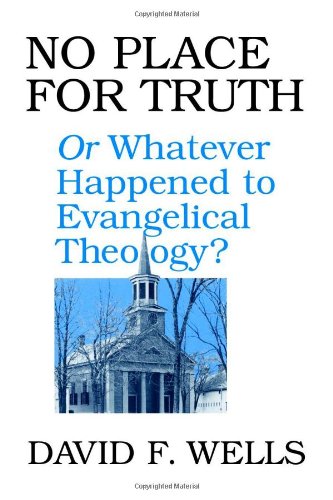A Brief Book Summary from Books At a Glance
By Benjamin Montoya
About the Author
David F. Wells (PhD, University of Manchester) is the Andrew Mutch Distinguished Professor of Historical and Systematic Theology at Gordon-Conwell Theological Seminary.
Introduction
Churches used to be places where theology was something that was taught. Nowadays, the larger evangelical churches and those that desire to be, take a very different approach. They follow the wishes of the people that are based on the culture of the day. People want lots of choices in other areas of their lives, and now they want choices at church. It, too, has become a marketplace for consumers. How did this all come to be? Should we be concerned about it? What can we do about it? This book will answer these questions and much more.
Table of Contents
Prologue
Chapter I A Delicious Paradise Lost
Chapter II World Cliché Culture
The Circumstances of Faith
Chapter III Things Fall Apart
Chapter IV Self-Piety
Chapter V The Rise of Everyperson
Chapter VI The New Disablers
Chapter VII The Habits of God
Chapter VIII The Reform of Evangelicalism
Book Summary
Prologue
Chapter I: A Delicious Paradise Lost
The world that we live in has changed drastically. Let’s travel back in time to think about what it used to look like. Take the little town of Wenham, MA, as an example. It was your typical small-town community where everybody knew everyone and everyone had a sense of how to get to where they needed to go. People were born there, grew up there, and lived there their entire lives. They all had shared communal activities such as going to church. Women were expected to be domesticated. Men were expected to support the family financially. Marriage was a more permanent thing. Life was also largely affected by the weather outside—remember, this time period came before the furnace and air conditioning that we enjoy nowadays. This time period was, in many ways, a delicious paradise that is now lost.
Now the world has become a very different place due to modernization. This same little town is not what it used to be. Larger cities have expanded at what seems to be a random developing scheme, such that now this little secluded town is not any more. Women no longer have the same roles because many of them work. Marriage has become far less permanent for a number of reasons, but this larger societal change is certainly one of them. People have more connections than ever before. The larger world has found its way to every part of the way—including small towns. In a real sense, the delicious paradise that had been there in little small towns is lost by modern age.
How, then, does this larger societal change affect truth and evangelical theology? It is to that question that we will turn our attention to now.
Chapter II: World Cliché Culture
With all of these changes that have made their way into the modern age, there have been side effects that have come with them that may or may not have been intended. Think about your vist to a typical grocery store. If you intend to buy ketchup, you have all sorts of choices—different name brands, off-brands, sugar free, etc. You could easily find a dozen or more options just for ketchup. What has happened in the modern age is that the option to choose at the grocery store due to modernization has allowed for people to have options everywhere else—religion, home, etc. How did all of this come about?
It started with the Enlightenment. The Enlightenment was a movement that was all about one thing: freedom. It wanted freedom from God, freedom from authority, freedom from the past, and freedom from evil. These ideas have spread and refuse to die. In fact, with the modernization of the present age, it has brought along the ideas of modernization. Or, another way to think about it, is that with the secularization of society that started with. . .
[To continue reading this summary, please see below....]The remainder of this article is premium content. Become a member to continue reading.
Already have an account? Sign In
